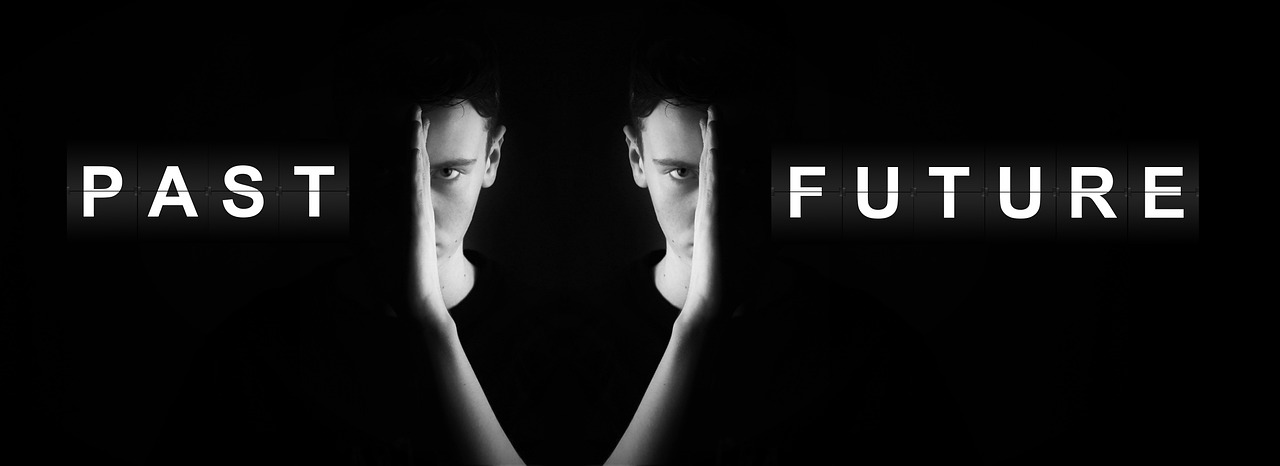Looking into the Mind of John Locke and His Philosophy
John Locke, a towering figure in the realm of philosophy, carved his name into the annals of history with ideas that still resonate today. His philosophy is like a vibrant tapestry, woven from threads of empiricism, natural rights, and a profound belief in human potential. As we delve into his thoughts, we discover not just a thinker, but a revolutionary who challenged the status quo and laid the groundwork for modern democratic thought.
Locke’s journey began in the 17th century, a time when the world was teetering on the brink of change. Imagine a world where kings ruled by divine right, and individual freedoms were but a whisper in the wind. Locke stepped onto this stage with a bold proposition: knowledge is not innate, but rather a product of experience. This was a radical departure from the rationalist views of his time, which suggested that reason alone could lead to knowledge. Instead, Locke argued that our senses are the gateways to understanding the world around us. It’s as if he handed humanity a set of keys, unlocking the doors to knowledge through observation and experience.
One of Locke's most captivating contributions is the concept of Tabula Rasa, or the blank slate theory. Picture a newborn baby, innocent and unmarked by the world. Locke believed that at birth, the mind is like this blank slate, ready to be inscribed with experiences. This idea revolutionized education and personal development, suggesting that anyone could achieve greatness through the right experiences and learning opportunities. It was a beacon of hope during the Enlightenment, inspiring educators to cultivate minds rather than merely fill them with information. This notion invites us to reflect: if we are all blank slates, what stories might we write with our lives?
Locke’s thoughts extended beyond personal development to the very structure of society itself. His ideas on the social contract laid the foundation for modern democracy. He posited that governments derive their legitimacy from the consent of the governed, a radical idea that shifted power from monarchs to the people. Imagine the thrill of a populace realizing they had a voice! Locke argued that individuals have the right to overthrow a government that fails to protect their rights. This notion ignited the flames of revolutions across the globe, inspiring leaders and citizens alike to demand their inherent rights.
At the heart of Locke's philosophy are the natural rights to life, liberty, and property. These rights are not granted by any authority; they are inherent to every individual. Locke’s assertion that these rights are universal and unalienable laid the groundwork for future political theories and movements. It’s as if he planted seeds of freedom that would blossom into the revolutions of the 18th and 19th centuries. The impact of his ideas can be seen in the Declaration of Independence and the Universal Declaration of Human Rights, echoing his belief that every person deserves to live freely and securely.
Locke was also a champion of religious tolerance. In an era rife with religious conflicts, his advocacy for coexistence was groundbreaking. He argued that faith should be a personal matter, free from coercion or imposition. This perspective encouraged a diverse society where differing beliefs could coexist harmoniously. Locke’s views on faith and reason remind us that understanding and respect are crucial in our increasingly pluralistic world.
Education, for Locke, was not just a means to acquire knowledge; it was a vital tool for personal development. He believed that learning should be engaging and tailored to the individual. Locke’s ideas on education emphasized the role of educators as facilitators of knowledge rather than mere transmitters of information. This approach invites us to reconsider our educational systems and the ways we inspire young minds to think critically and creatively.
Locke's influence rippled through the ages, inspiring Enlightenment thinkers like Rousseau and Voltaire. His ideas shaped the course of modern philosophy and political thought, igniting discussions that would challenge the very fabric of society. The legacy of Locke is a testament to the power of ideas, reminding us that a single voice can spark a movement.
However, Locke's philosophy was not without its critiques. Some contemporaries and later philosophers raised questions about his views, particularly regarding his stance on property rights and the implications of his theories on equality. These debates continue to enrich philosophical discourse, ensuring that Locke’s ideas remain a vital part of contemporary discussions.
In conclusion, John Locke's philosophy is a treasure trove of insights that continue to resonate in today's discussions on rights, governance, and human nature. His legacy endures, reminding us of the importance of experience, the value of individual rights, and the necessity of tolerance in a diverse society. As we navigate the complexities of modern life, Locke's thoughts serve as a guiding light, encouraging us to strive for a world where every individual has the opportunity to flourish.
- What is the main idea of Locke's philosophy? Locke's philosophy emphasizes empiricism, the belief that knowledge comes from sensory experience, and the importance of natural rights.
- What does Tabula Rasa mean? Tabula Rasa is the theory that individuals are born as blank slates, shaped by their experiences and learning.
- How did Locke influence modern democracy? Locke's social contract theory laid the groundwork for the idea that governments derive their authority from the consent of the governed.
- What are Locke's natural rights? Locke identified natural rights as life, liberty, and property, which he argued are inherent to all individuals.
- Why is Locke important today? Locke's ideas about rights, governance, and tolerance continue to inform modern political thought and discussions about individual freedoms.

The Empiricist Foundation
John Locke’s philosophy stands as a beacon of empiricism, a school of thought that champions the idea that knowledge is primarily derived from sensory experience. Unlike the rationalists, who believed that certain truths could be known through reason alone, Locke argued that our understanding of the world is grounded in what we can see, hear, touch, taste, and smell. Imagine walking into a vibrant market; the colors, sounds, and smells all contribute to your understanding of that environment. This sensory engagement forms the basis of Locke's belief that the mind is not a vessel to be filled with pre-existing ideas but rather a canvas that is painted upon through experiences.
Locke's empiricist stance fundamentally changed the way we view human cognition. He proposed that the mind at birth is akin to a blank slate, or tabula rasa, ready to be inscribed with knowledge through experience. This notion challenged the prevailing views of his time, which often suggested that knowledge was innate or divinely granted. By emphasizing experience, Locke laid the groundwork for a more scientific approach to understanding human behavior and thought. This approach not only influenced philosophy but also had profound implications for fields such as psychology and education.
Furthermore, Locke's ideas on empiricism can be broken down into several key points:
- Sensory Experience: Knowledge is obtained through our senses.
- Rejection of Innate Ideas: Locke dismissed the notion that we are born with inherent knowledge.
- Impact on Education: His views encouraged educational systems to focus on experiential learning.
This empirical foundation is essential for understanding Locke's contributions to modern thought. It invites us to consider how our perceptions shape our beliefs and how knowledge evolves over time. As we delve deeper into his philosophy, we will see how this emphasis on experience not only shaped his views on knowledge but also laid the groundwork for his thoughts on government, rights, and personal development.

Tabula Rasa: The Blank Slate Theory
John Locke's concept of Tabula Rasa, or the "blank slate," is one of the most revolutionary ideas in the realm of philosophy and education. Imagine starting life with a completely empty canvas, devoid of any preconceived notions or biases. This is precisely how Locke viewed the human mind at birth. He argued that individuals are not born with innate ideas; instead, they are shaped by their experiences and interactions with the world around them. This perspective was a stark contrast to the prevailing rationalist views of his time, which posited that certain ideas were hardwired into our brains from birth.
Locke's theory had profound implications, particularly in the fields of education and personal development. By advocating that knowledge is acquired through sensory experiences, he laid the groundwork for a more empirical approach to learning. This means that rather than relying on abstract reasoning or innate ideas, individuals should engage with their environment to gather knowledge. For educators, this was a call to action: to create learning environments that are rich in experiences, allowing students to explore, experiment, and ultimately understand the world.
To illustrate the impact of the Tabula Rasa theory, consider the following key points:
- Educational Reform: Locke's ideas prompted a shift in educational methodologies, emphasizing experiential learning over rote memorization.
- Personal Growth: The notion that we are shaped by our experiences encourages a mindset of continuous learning and adaptability.
- Social Implications: If individuals are influenced by their surroundings, then society has a responsibility to provide enriching environments that foster positive development.
This blank slate theory also sparked discussions about nature versus nurture, a debate that continues to this day. Are we products of our genetics, or do our experiences shape who we become? Locke's assertion that we are born as blank slates suggests that our environments play a pivotal role in our development, challenging the notion that our destinies are predetermined by biology.
Furthermore, the implications of the Tabula Rasa theory extend beyond education and personal development. It laid the groundwork for modern psychology and the understanding of human behavior. The idea that our minds can be molded by experiences has fueled countless studies and theories in behavioral sciences. It invites us to consider how our upbringing, culture, and social interactions influence our beliefs, attitudes, and actions.
In conclusion, John Locke's concept of Tabula Rasa revolutionized the way we think about knowledge and learning. By viewing the mind as a blank slate, he emphasized the importance of experience in shaping our understanding of the world. This idea not only transformed educational practices during the Enlightenment but also continues to resonate in contemporary discussions about human development and psychology. Locke's legacy reminds us that each of us is capable of growth and change, shaped by the experiences we encounter throughout our lives.
- What is the Tabula Rasa theory? The Tabula Rasa theory posits that individuals are born without innate ideas and that knowledge is acquired through experience.
- How did Locke's theory influence education? Locke's ideas encouraged experiential learning, leading to educational reforms that prioritize hands-on experiences over memorization.
- What are the implications of the nature versus nurture debate? Locke's emphasis on experience suggests that our environments significantly shape our development, influencing our beliefs and behaviors.

Social Contract and Government
John Locke's philosophy on the social contract is nothing short of revolutionary. Imagine a world where the authority of rulers is derived not from divine right or brute force, but from the consent of the governed. Locke proposed that individuals in a state of nature come together to form a society, agreeing to surrender some of their freedoms in exchange for the protection of their remaining rights. This concept laid the groundwork for modern democracy and fundamentally changed how we view governance.
Locke's social contract theory can be summarized in a few key principles:
- Consent of the Governed: The legitimacy of government arises from the consent of the people. Citizens have the right to choose their leaders and hold them accountable.
- Protection of Rights: The primary role of government is to protect the natural rights of individuals—namely, life, liberty, and property.
- Right to Revolt: If a government fails to uphold its end of the social contract, the people have the right to overthrow it. This radical idea inspired countless revolutions and movements for change.
Locke's ideas were not just theoretical musings; they had real-world implications. His vision of a government that exists to serve its citizens was a stark contrast to the monarchies of his time, where kings ruled by divine right. Instead, Locke argued that a government's power should be limited and defined by laws that protect individual rights. This perspective is crucial in understanding the evolution of democratic thought.
Moreover, Locke's emphasis on the social contract spurred discussions about the nature of authority and the responsibilities of both the government and the governed. His writings encouraged people to question the status quo and advocate for their rights, leading to significant political changes across Europe and beyond. The American Revolution and the French Revolution are prime examples of how Locke's ideas inspired citizens to demand a government that reflects their will and protects their freedoms.
In essence, Locke's social contract theory is a cornerstone of modern political philosophy. It challenges us to think critically about the relationship between individuals and the state. Are we, as citizens, merely subjects of authority, or do we have a voice in the governance of our lives? Locke believed we should be active participants in shaping our society, and this belief continues to resonate today.
- What is the social contract theory? The social contract theory posits that individuals consent to form a government that will protect their rights in exchange for some of their freedoms.
- How did Locke's ideas influence modern democracy? Locke's emphasis on consent, rights, and the right to revolt laid the foundation for democratic governance and the belief in individual rights.
- What are natural rights according to Locke? Natural rights are fundamental rights inherent to all individuals, including life, liberty, and property.

Natural Rights and Liberty
At the heart of John Locke's philosophy lies the revolutionary concept of natural rights, which he defined as inherent entitlements that every individual possesses simply by being human. These rights, according to Locke, include the fundamental rights to life, liberty, and property. Imagine a world where these rights are not just privileges granted by a governing body, but rather the birthright of every person. This idea was nothing short of explosive during the Enlightenment, as it challenged the prevailing notions of authority and governance.
Locke argued that the primary role of government is to protect these natural rights. If a government fails to do so, or worse, actively infringes upon them, the citizens have not only the right but the duty to overthrow that government. This was a radical departure from the traditional view that monarchs were divinely appointed and thus above reproach. Locke's social contract theory provided a framework where the legitimacy of government is based on the consent of the governed, fundamentally reshaping political thought.
To better understand the implications of Locke's views on natural rights, consider the following table that outlines the key components of his philosophy:
| Natural Right | Description | Significance |
|---|---|---|
| Life | The right to live without fear of unjust harm. | Foundation for personal safety and security. |
| Liberty | The freedom to act and think as one chooses. | Essential for personal autonomy and self-determination. |
| Property | The right to own and control possessions. | Encourages economic independence and prosperity. |
Locke's emphasis on natural rights not only influenced political philosophy but also inspired revolutionary movements across the globe. His ideas can be seen echoed in the American Declaration of Independence, which famously states that all men are created equal and endowed with certain unalienable rights. This connection illustrates how Locke's thoughts transcended his time, providing a foundation for modern democratic ideals.
Moreover, Locke's philosophy has implications beyond politics; it extends into the realm of human dignity and respect for individual autonomy. In today's society, discussions around human rights often draw on Locke's principles, highlighting their enduring relevance. As we navigate complex issues such as privacy, freedom of speech, and social justice, Locke's assertion that individuals possess rights that cannot be surrendered or transferred remains a powerful guiding principle.
In conclusion, Locke's exploration of natural rights and liberty not only laid the groundwork for modern political theory but also championed the idea that every individual deserves respect and protection of their inherent rights. His revolutionary thoughts continue to resonate in contemporary discourse, reminding us that the quest for liberty is an ongoing journey.
- What are natural rights? Natural rights are fundamental rights that every individual possesses, including the rights to life, liberty, and property.
- How did Locke influence modern democracy? Locke's ideas about government based on the consent of the governed and the protection of natural rights laid the foundation for democratic principles.
- What is the significance of the social contract? The social contract is a theory that posits that governments derive their authority from the consent of the people, which is a cornerstone of modern political thought.

Religious Tolerance
When we dive into the philosophical waters of John Locke, we quickly encounter his unwavering advocacy for . In an era where religion often dictated the political landscape and personal freedoms, Locke stood out as a beacon of reason and coexistence. His arguments were revolutionary, challenging the status quo that demanded conformity to particular beliefs. Imagine a world where your faith—or lack thereof—could cost you your life or liberty. Locke's philosophy sought to dismantle that oppressive reality.
Locke believed that faith should be a personal journey, not a tool for governance. He argued that the imposition of beliefs by the state not only infringes upon individual rights but also undermines the very essence of faith. According to him, true belief cannot be forced; it must come from personal conviction. This perspective was not just a philosophical stance; it was a call for respect and understanding among diverse groups. In Locke's eyes, a society rich in differing beliefs could thrive, as long as each individual respected the rights of others to think and believe differently.
To illustrate Locke's views, consider the following key points that encapsulate his philosophy on religious tolerance:
- Faith and Reason: Locke posited that faith should be informed by reason. He argued that individuals must use their rational faculties to explore and understand their beliefs.
- Coexistence: He advocated for a society where people of different religions could live together peacefully. Locke believed that a government that respects religious diversity fosters harmony.
- Separation of Church and State: Locke's vision included a clear distinction between governmental authority and religious institutions, ensuring that neither interfered with the other.
Locke's emphasis on was not just theoretical; it had practical implications. He argued that societies that embraced diversity were more likely to flourish. This idea was a precursor to modern concepts of pluralism and human rights, laying the groundwork for democratic societies where freedom of belief is a fundamental principle. His thoughts on tolerance resonate strongly today, especially in our increasingly globalized world, where understanding and respecting different beliefs is more crucial than ever.
In conclusion, Locke's advocacy for religious tolerance was a radical yet necessary vision for his time. He understood that a society built on respect for individual beliefs would not only be more just but also more stable. His ideas continue to inspire discussions about the importance of coexistence in our diverse world, reminding us that our differences can be a source of strength rather than division.
- What did John Locke believe about religious tolerance?
Locke believed that individuals should have the freedom to practice their own religion without interference from the government or other individuals. - How did Locke's views influence modern society?
His ideas about religious tolerance laid the groundwork for the principles of freedom of religion and the separation of church and state that are foundational in many democratic societies today. - Why is religious tolerance important?
Religious tolerance is essential for peaceful coexistence in diverse societies, allowing individuals to express their beliefs freely and fostering mutual respect.

Education and Knowledge Acquisition
John Locke firmly believed that education was a cornerstone for personal development and societal progress. He argued that the way we acquire knowledge directly influences our character and capabilities. Imagine your mind as a garden; if you plant the right seeds, nurture them well, and provide ample sunlight, you will reap a bountiful harvest. In Locke's view, education acts as that nurturing force, transforming the blank slate of our minds into a flourishing landscape of ideas and understanding.
Locke emphasized that knowledge isn't merely handed down from on high; rather, it is cultivated through experience and interaction with the world. He famously stated, “The mind is furnished with ideas by experience alone.” This perspective invites us to consider how our surroundings, our experiences, and our interactions shape who we are. It's not just about rote memorization; it's about engaging with the material and allowing it to resonate within us. This approach was revolutionary during the Enlightenment, as it challenged the traditional methods of education that often relied on authoritarian teaching styles.
In Locke's educational framework, he advocated for a few key principles that still hold relevance today:
- Active Learning: Locke believed that learners should be active participants in their education, engaging with materials rather than passively receiving information.
- Critical Thinking: He stressed the importance of questioning assumptions and developing the ability to think critically about the information presented.
- Practical Application: Knowledge should be applied to real-life situations, helping learners to see the relevance of what they are studying.
Locke's thoughts on education also extended to the role of educators. He viewed teachers not as mere transmitters of knowledge but as facilitators of learning. They should guide students in their quest for understanding, encouraging them to explore and discover rather than simply instructing them on what to think. This idea laid the groundwork for modern pedagogical approaches that value student engagement and collaborative learning environments.
Moreover, Locke argued that education should be tailored to the individual. He recognized that each person learns differently, and thus, a one-size-fits-all approach would be ineffective. This understanding of individual learning styles has led to more personalized education systems that cater to diverse needs, fostering an inclusive environment where every learner has the opportunity to thrive.
Locke's impact on education is profound; his ideas have influenced not only how we think about teaching and learning but also how we view the very purpose of education itself. It’s about shaping individuals who can think for themselves, engage with their communities, and contribute meaningfully to society. His philosophy remains a guiding light for educators and learners alike, encouraging a lifelong journey of discovery and growth.
- What did John Locke believe about education?
Locke believed that education was essential for personal development and that it should be tailored to the individual's needs, emphasizing active learning and critical thinking. - How did Locke's views influence modern education?
His ideas laid the groundwork for student-centered learning approaches, encouraging engagement, practical application, and individualized education. - Why is the concept of the 'blank slate' important in education?
The 'blank slate' theory suggests that individuals are shaped by their experiences, highlighting the role of education in forming knowledge and character.

Influence on Enlightenment Thinkers
John Locke's philosophy served as a catalyst for the Enlightenment, igniting a flame of intellectual curiosity that spread across Europe and beyond. His ideas on empiricism, natural rights, and the social contract not only challenged the status quo but also inspired a generation of thinkers who would shape the course of modern philosophy and governance. Imagine a world where ideas flowed like a river, with Locke's thoughts acting as the source from which many tributaries branched out, influencing the likes of Rousseau, Voltaire, and Montesquieu.
Locke's emphasis on reason and experience as the cornerstones of knowledge resonated deeply with Enlightenment thinkers. For instance, Rousseau embraced Locke's notion of the social contract, which posited that governments derive their authority from the consent of the governed. This idea was revolutionary, suggesting that individuals have the power to shape their own destinies rather than being subjected to the whims of monarchs. Rousseau famously expanded on this by proposing that true freedom comes from being governed by laws that one has a hand in creating.
Voltaire, another prominent figure of the Enlightenment, was equally influenced by Locke's advocacy for religious tolerance. Locke's arguments against the imposition of beliefs encouraged Voltaire to champion freedom of speech and expression. He famously stated, “I disapprove of what you say, but I will defend to the death your right to say it.” This sentiment echoes Locke’s belief that a diverse society thrives when individuals coexist peacefully, regardless of their differing beliefs.
Moreover, Locke's ideas on natural rights—life, liberty, and property—became foundational principles for many Enlightenment thinkers. Montesquieu, for example, integrated these concepts into his theories of government, advocating for the separation of powers to prevent tyranny. The ripple effect of Locke's philosophy can be seen in the writings of Thomas Jefferson, who drew heavily from Locke’s ideas when drafting the Declaration of Independence, asserting the inalienable rights of individuals.
In summary, the influence of John Locke on Enlightenment thinkers is profound and multifaceted. His ideas not only challenged existing norms but also laid the groundwork for contemporary discussions on government legitimacy, individual rights, and personal freedoms. The Enlightenment was not just a period of intellectual awakening; it was a revolution in thought, and Locke was one of its most significant architects, paving the way for future generations to explore and expand upon his revolutionary ideas.
- What is the main idea behind Locke's philosophy? Locke believed that knowledge is derived from sensory experience and that individuals are born with natural rights that must be protected by government.
- How did Locke influence modern democracy? His concepts of the social contract and government by consent laid the foundation for democratic principles, emphasizing that authority comes from the people.
- What role did Locke’s ideas play in the Enlightenment? Locke’s emphasis on reason, individual rights, and religious tolerance inspired many Enlightenment thinkers to challenge traditional authority and advocate for social reforms.

Critiques and Counterarguments
John Locke's philosophy, while groundbreaking, has not been without its critics. Many scholars and philosophers have raised questions about his ideas, particularly regarding his views on empiricism and the social contract. For instance, some argue that Locke's insistence on empirical knowledge overlooks the role of innate ideas, a viewpoint championed by rationalists like René Descartes. They contend that not all knowledge can be derived from sensory experience, suggesting that some concepts, such as mathematical truths, exist independently of experience. This debate raises intriguing questions about the nature of knowledge itself: Is it purely a product of experience, or do we possess inherent understanding that guides our perceptions?
Another significant critique comes from those who challenge Locke's concept of the social contract. Critics like Thomas Hobbes argue that Locke's idealized vision of human nature is overly optimistic. Hobbes believed that without a strong central authority, society would descend into chaos, famously stating that life in a state of nature would be "solitary, poor, nasty, brutish, and short." This stark contrast to Locke's more favorable view of human cooperation and reason invites a deeper examination of the assumptions underlying his political philosophy. Are humans naturally inclined toward peace and cooperation, or is a governing authority necessary to maintain order?
Locke's ideas on natural rights also face scrutiny. Some critics argue that the emphasis on property rights can lead to social inequalities and justify exploitation. They contend that Locke's formulation of property as a natural right overlooks the implications of wealth distribution and the potential for economic injustice. This perspective raises critical questions about the balance between individual rights and the collective good: Should the right to property take precedence over societal welfare, or should there be limitations to ensure equitable access to resources?
Moreover, Locke's advocacy for religious tolerance has sparked debates about the limits of tolerance itself. While he championed coexistence among different faiths, some argue that this stance may inadvertently enable harmful ideologies. Critics question whether all beliefs should be tolerated equally, especially those that may incite violence or discrimination. This discussion highlights the tension between upholding individual freedoms and protecting societal harmony.
Despite these critiques, Locke's philosophy has proven resilient. His ideas have sparked ongoing discussions and adaptations, leading to a richer understanding of human rights and governance. In fact, many contemporary political theories still draw upon Locke's foundational concepts, even as they address the criticisms he faced. The evolution of philosophical discourse around Locke's work demonstrates the dynamic nature of ideas and their ability to adapt to new contexts.
- What is John Locke's most significant contribution to philosophy?
Locke's most notable contribution is arguably his theory of knowledge, particularly the idea of tabula rasa, which posits that individuals are born as blank slates and that experience shapes our understanding. - How did Locke influence modern democracy?
Locke's concepts of the social contract and natural rights laid the groundwork for modern democratic thought, emphasizing the importance of government accountability and citizen rights. - What are the main critiques of Locke's philosophy?
Critiques include challenges to his views on empiricism, the nature of the social contract, and the implications of his theories on property rights and religious tolerance. - Is Locke's philosophy still relevant today?
Yes, Locke's ideas continue to resonate in contemporary discussions about human rights, governance, and the role of individual freedoms in society.

Legacy and Modern Relevance
John Locke's contributions to philosophy and political theory have left an indelible mark on modern society. His ideas, particularly regarding natural rights and the social contract, have profoundly influenced contemporary discussions on governance, individual freedoms, and the role of the state. In an age where democracy and human rights are at the forefront of global discourse, Locke's principles resonate louder than ever.
Locke's notion that individuals possess inherent rights to life, liberty, and property laid the groundwork for many democratic societies around the world. These concepts have been integrated into various national constitutions and declarations, such as the United States Declaration of Independence, which echoes Locke’s assertion that it is the government's duty to protect these rights. His influence can be seen in the way modern democracies are structured, emphasizing the importance of individual rights and the need for government accountability.
Moreover, Locke's ideas about the social contract have shaped political philosophy significantly. He argued that governments derive their authority from the consent of the governed, a revolutionary idea that challenged the traditional notions of monarchy and authoritarian rule. This perspective has inspired countless movements advocating for democratic governance and civil rights, leading to the establishment of more equitable societies where the voices of the people matter.
In addition to political theory, Locke's emphasis on education as a means of personal development remains relevant today. He believed that a well-rounded education is essential for cultivating rational thinkers who can contribute positively to society. This notion has paved the way for modern educational systems that prioritize critical thinking and experiential learning, emphasizing that knowledge is not merely transmitted but actively constructed through experience.
Locke's advocacy for religious tolerance also holds significant relevance in our increasingly multicultural world. His arguments against the imposition of beliefs highlight the importance of coexistence and respect among diverse faiths. In a time when religious conflicts are prevalent, Locke's ideas encourage dialogue and understanding, reminding us that diversity can enrich society rather than divide it.
As we navigate the complexities of the 21st century, Locke's philosophy serves as a crucial touchstone for discussions on individual rights, governance, and societal values. His legacy is not merely a relic of the past; it is a living framework that continues to inspire and challenge us to think critically about our roles as citizens and the responsibilities of our governments.
- What are John Locke's main contributions to philosophy?
Locke is best known for his theories on empiricism, natural rights, and the social contract, which have significantly influenced modern political thought and education.
- How did Locke's ideas influence democracy?
His assertion that governments should protect the natural rights of individuals laid the groundwork for democratic principles, emphasizing the importance of consent and accountability.
- What is the significance of Locke's blank slate theory?
Locke's idea that the mind is a blank slate at birth revolutionized education, suggesting that experiences shape knowledge and character, paving the way for modern educational philosophies.
- Why is religious tolerance important in Locke's philosophy?
Locke believed that individuals should be free to practice their own beliefs without coercion, promoting coexistence in diverse societies, which is crucial for harmony and peace.
Frequently Asked Questions
- What is John Locke's main philosophy?
John Locke's main philosophy revolves around the idea of empiricism, which asserts that knowledge comes from sensory experience. He believed that our understanding of the world is shaped by what we perceive through our senses, contrasting with rationalist views that prioritize reason over experience.
- What does the term "Tabula Rasa" mean in Locke's philosophy?
"Tabula Rasa," or the "blank slate" theory, is a concept introduced by Locke suggesting that individuals are born without innate ideas and that all knowledge is acquired through experience. This revolutionary idea emphasized the importance of education and personal development, influencing educational theories during the Enlightenment.
- How did Locke influence modern democracy?
Locke's ideas on the social contract laid the groundwork for modern democracy by advocating for government legitimacy based on the consent of the governed. He argued that citizens have natural rights to life, liberty, and property, which must be protected by the government, thereby influencing political philosophy significantly.
- What are natural rights according to Locke?
Natural rights, as defined by Locke, refer to the fundamental rights inherent to all individuals, including the rights to life, liberty, and property. These concepts played a crucial role in shaping political theory and inspired revolutionary movements, emphasizing the importance of individual rights in governance.
- Did Locke advocate for religious tolerance?
Yes, Locke strongly advocated for religious tolerance. He argued against the imposition of beliefs and emphasized the importance of coexistence in a diverse society, promoting the idea that faith should be a personal choice rather than a matter of state control.
- What was Locke's view on education?
Locke believed that education is vital for personal development and the cultivation of rational individuals. He emphasized the role of educators in shaping students' understanding and advocated for learning methodologies that prioritize experience and critical thinking.
- How did Locke influence Enlightenment thinkers?
Locke's philosophy had a profound impact on Enlightenment thinkers, inspiring figures like Rousseau and Voltaire. His ideas on natural rights, government, and education helped shape modern philosophy and political thought, paving the way for future discussions on liberty and governance.
- What critiques did Locke face?
Locke faced several critiques from contemporaries and later philosophers, particularly regarding his views on innate ideas and the social contract. Critics argued against the feasibility of his theories and how they could be applied in real-world governance, leading to ongoing philosophical discourse.
- What is Locke's legacy in modern society?
Locke's thoughts continue to resonate in contemporary discussions about rights and governance. His emphasis on individual liberties and the social contract remains relevant today, influencing modern democratic principles and human rights discussions around the globe.



















